Keynote Speaker I
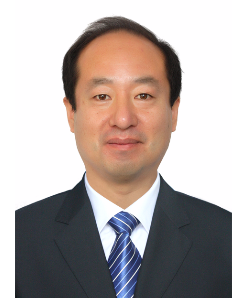
Dezhi Ning
Dalian University of Technology, China
Title: A Super-Efficient Oscillating Water Column Wave Energy Capture System
Abstract: Ocean wave energy as a renewable resource has immense potential to meet global power supply demands. However, its development and commercialisation has been beset by low wave energy densities recorded in the nearshore regions where wave energy harvesting devices are most commonly installed. The problem is further compounded by the low wave-to-wire conversion efficiencies realised by prototype devices. By coupling an oscillating water column, wave energy converter, with a parabolic energy concentrator, we demonstrate energy conversion efficiencies significantly exceeding previously recorded conversion efficiencies. The parabolic concentrator reflects and consolidates the wave energy to a focal point, at which, the wave energy convertor is positioned. Experimental investigations, supported by numerical modelling confirm a hydrodynamic capture width ratio exceeding unit value can be achieved for a broad wave-bandwidth spectrum, and in certain wave environments, values as high as 2.25 can be attained. The wave-to-wire conversion efficiency at resonance condition obtained using the power output from a unidirectional turbine exceeds 70% in this study. Higher efficiencies are expected with a bidirectional turbine attached to the wave energy converter device. These remarkably high energy efficiency conversion results present an outstanding opportunity for a new paradigm in ocean wave energy harvesting.
Bio: Prof. Dezhi Ning got his PhD degree major in Port, Coastal and Offshore Engineering at Dalian University of Technology (DUT) in 2005. Then he worked in the University of Oxford as a Postdoctoral Researcher from 2005 to 2007. Now, he is the distinguished professor of Changjiang Scholar in the field of coastal and ocean engineering at DUT. He currently serves as the Vice Dean of the Faculty of Infrastructure Engineering and Director of the State Key Laboratory of Coastal and Offshore Engineering, leading one of the top research groups on wave hydrodynamics and wave energy conversion (WEC). He is the Principal Investigator for six major projects sponsored by the National Science Foundation of China (NSFC), and he is supported by the highly-competitive Excellent Young Scientist programme in China. He also led a Royal Academy of Engineering Project under Newton Fund for the integration of WECs and floating breakwaters. He has published over 300 peer-reviewed journal/conference papers and selected as one of the Most Cited Chinese Scholars by Elsevier in 2020-2023. He chaired several international conferences on water waves and marine renewable energies such as IWWWFB, PACOMS and CoastLab etc. He serves as associate editors of PICE-Maritime Engineering, China Ocean Engineering, Frontiers in Energy Research and Journal of Hydrodynamics, editorial board members of the international journals of Ocean Engineering, and Journal of Marine Science and Application etc.
Keynote Speaker II
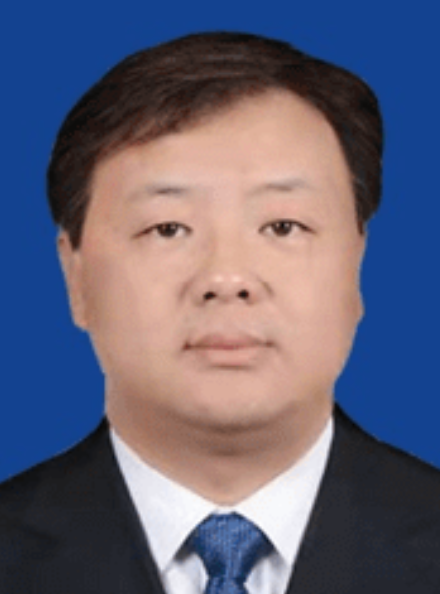
Yongjun Gong
Dalian Maritime University, China
Title: Research and Application of Key Technologies and Equipment for Salvaging Sunken Ships under Complex Conditions
Abstract: In modern times, maritime transportation has become increasingly important to a nation’s economy, national security and people’s welfare. The total amount of transportation over seas has increased over the years, the ever-busy maritime routes have become crowded by the day post the COVID-19 pandemic. Under extreme events, maritime accident such as the MV Sewol, could happen, causing drastic impacts to both social security and economy. Therefore, it is important to remove the sunken vessels and restore the sea passage as soon as possible. In the past 15 years, Dalian Maritime University has been a leading party in the research and development of maritime equipment for subsea engineering, specialized in salvage and rescue technologies. In this presentation, the state-of-the-art research and applications of key technologies and equipment for salvaging sunken vessels under complex weather conditions are to be reported. The key technologies such as underwater imaging, wave compensated lifting, underwater operation tools, etc. developed by DMU are to be discussed.
Bio: Gong Yongjun is a full professor, doctoral supervisor, and the director of the Science and Technology Department at Dalian Maritime University. He is one of the leading talents in the National "Ten Thousand Talents Plan", young leading talents in the “Innovation Talent Promotion Plan” of the Ministry of Science and Technology of China, and nominated “the role model for workers in the national transportation industry”. He is currently serving as the Deputy Director of the National Key Laboratory for Waterway Traffic Control, the Executive Director of the "International Joint Research Center for Submarine Engineering Technology and Equipment" of the Ministry of Science and Technology of China, and a key member of the National Maritime Emergency Advisory Expert Group. Professor Gong has extensive experiences in directing cutting-edge research on marine engineering technology, rescue and salvage technology and equipment.
Keynote Speaker III
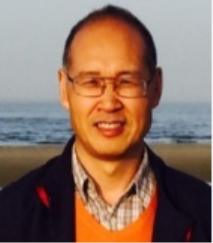
Zaijin You
Dalian Maritime University, China
Title: A Unique Approach for Calculation of Maritime Design Wave Heights
Abstract: Extreme wave conditions are often required for maritime structure designs and port operations. Design wave heights or called n-year return wave heights are often extrapolated from historical wave records with statistical extreme-value theory. Although a large number of studies have been undertaken to develop and improven extreme wave analysis method, there still exists much uncertainty in the calculation of design wave heights. This study is to investigate main causes of this uncertainty based on high quality long-term wave data collected off the NSW coast of Australia. It is found that this uncertainty is caused mainly by short wave record, missing storm wave data, different methods for generation of extreme wave height data, unsuitable distribution functions, different distribution parameter estimators, and ad-hoc criteria on selection of the best-fit function. A unique approach is then proposed to minimize all the above uncertaities for calculation of design wave heights.
Bio: Dr Zai-Jin (Bob) YOU is a Distinguished Research Professor at Dalian Maritime University, and Academician of the European Academe of Natural Sciences. He graduated from Tianjin University and received a PhD in Coastal Engineering from the University of New South Wales in 1993, and then worked as Research Fellow in Quebec University in Canada, Senior Research Scientist in Australia, and Professor in China since 2014. He has led more than 10 major research projects in both Australia and China, published more than 140 papers, and received several prestigious national and provincial awards, including “Distinguished Young Scholar” from the Chinese Research Council.
Keynote Speaker Ⅳ
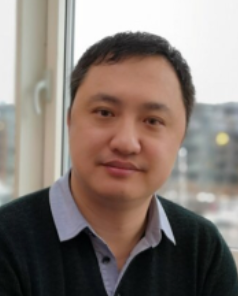
Shixiao Fu
Shanghai Jiao Tong University, China
Title: Nonlinear Hydroelasticity under Spatially Inhomogeneous Waves
Abstract: For very large floating structures, for example, the fjord crossing floating bridges in Norway, and the floating platform around an island, in most cases, the wave fields will become spatially inhomogeneous. And the hydroelasticity of this kind of very large floating structures has became a challenge for long time. We proposed a so called “double discretizing” method, to trate this problem. Firstly we discretize the continuous floating structures into a beam connected independent rigid modules system. Secondly, we discretize the spatially inhomogeneous wave filed into several independent zoons, in each zoon the wave is simplified as a uniform homogenous wave. Combining with the multi body hydrodynamic theory, we can easily get the hydoelastic responses of very large floating structures. And this method has been realized in both linear and nonlinear, frequency and time domain. In this presentation, I will present this method and some numerical results.
Bio: Dr. Shixiao Fu, is a distinguished professor at Shanghai Jiao Tong University, an academician of the Norwegian Academy of Technical Sciences, the winner of the 2022 Scientific Exploration Award, and the winner of the National Outstanding Youth Fund. He serves as associate editors of three international journals in the field of marine engineering journals: MARINE STRUCTURES, Journal OMAE, and Maritime Engineering. He serves as vice dean of the School of Naval Architecture, Ocean and Civil Engineering of Shanghai Jiao Tong University, and deputy director of the State Key Laboratory of Ocean Engineering. His main research areas include vortex-induced vibration, hydroelasticity of large pontoons/suspended tunnels, and large-scale aquaculture cages. His research results won the “Special Prize” of Ocean Engineering Science and Technology of China, and the first prize of the Shanghai Science and Technology Progress Award.
Keynote Speaker Ⅴ
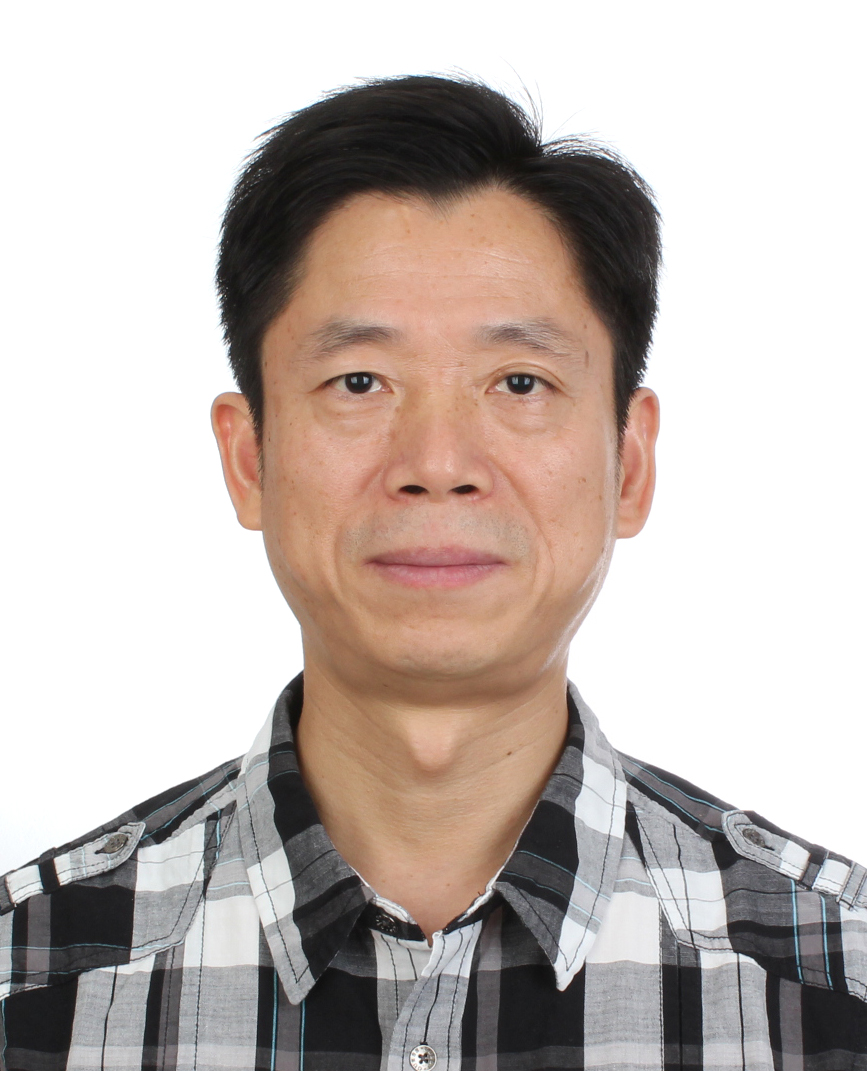
Menglan Duan
Tsinghua Shenzhen International Graduate School, China
Title: Creative Concept and Equipment for Cheaper Offshore Wind Energy
Abstract: Rich wind resources always exist in areas far away from the coast, and large floating structures for high power wind energy are in demand. The severe enviroments endanger the transportation, installation and decommsioning of so large and heavy structure systems. New concepts are presented to meet the challenges from building wind farms in the deep and remote oceans, and creative equipment along with such concepts is detailed.
Bio: Tenured Professor of topnortch position, deputy director of the Institute for Ocean Engineering, Tsinghua University ever acted as Dean of College for Safety and Ocean Engineering, China University of Petroleum, Beijing, and Chief Engineer of CCS Industry, China Classification Society. Obtained the PhD in Mechanical Engineering at the Petroleum University in 1993.
Keynote Speaker Ⅵ
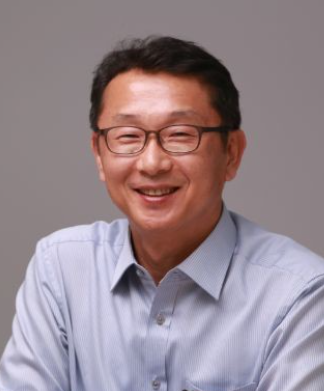
Sa Young Hong
Korea Research Institute of Ships and Ocean Engineering, Korea
Title: An Analysis of Hydroelastic Behaviors of Floating Solar Power Plants in Waves
Abstract: Efforts to use renewable energy resources in development of electric power are increasing. During the last decade, solar electric power has been emerging as a dominating position, competing with an existing crown chair of wind energy. For photovoltaic electric power generation, the portion of floating solar power generation has been increasing since 2007 due to its advantages of using wide open space at sea where no disturbances to human life and high efficiency are expected. Ocean renewable energy is affordable only when a safe and economic structure is provided for assurance of both safety and economy considering harsh ocean environmental conditions. Basically extraction of solar power requires a huge area, which induces engineering challenges in the course of realization of huge structures withstanding harsh environment at sea.For huge floating structures, the design concept should consider hydroelasticity for design of optimal structural solution to make sure of safety under harsh environment. In the present study, design concept of floating solar power plant considering hydroelasticity is addressed in terms of mass-spring-damper system modeling ad simulation. Some of typical case studies will be presented which covers hydrodynamic interactions of multiple floaters, hydroelastic modelling of floater structures by means of numerical analysis and model tests.
Bio: Dr. Sa Young HONG studied Naval Architecture and Ocean Engineering at Seoul National University, he got his BS(1983), MS(1985), and PhD(1994) in the same University. He started his career as a researcher at KRISO(Korea Research Institute of Ships and Ocean Engineering) since 1985. He had served as Head of Ocean Engineering Research Division, Vice President of KRISO. He also served as the President of International Society of Offshore and Polar Engineers(2018-2020), President of Korean Society of Ocean Engineers(2014-2015), member of ITTC Ocean Engineering Committee(2003-2008), adjunct Professor of KAIST(2011-2015), and Adjunct Professor of Chungnam National University(2012-2015). He also was visiting scholar at Texas A&M University(1998-1999), visiting scholar at ABS(American Bureau of Shipping, 2008-2009). He is now a principal researcher of KRISO, a Professor of Ships and Ocean Engineering Program, University of Science and Technology. He is a member of National Academy of Engineering of Korea since 2020.His major research areas are floating body dynamics which covers ships and offshore hydrodynamics, hydorelasticity, mooring dynamics, VLFS technology, ocean renewable energy. He has published more than 150 international journal papers and peer reviewed conference papers in the field of ocean engineering and naval architecture.
Keynote Speaker Ⅶ
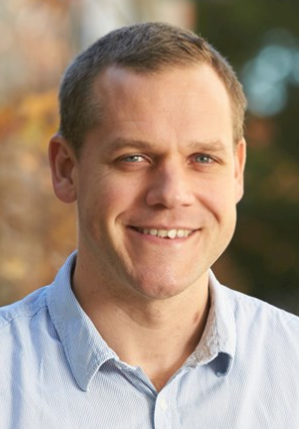
Scott Draper
University of Western Australia, Australia
Title: Ocean-Structure-Seabed Interaction: Combining laboratory experiments and field data to inform design
Abstract: Field data is becoming increasingly accessible due to both the continued development of new offshore infrastructure and improvements in technology which are enabling cheaper, high-quality sensing. In this talk we will share some examples of the type of field data that is available for offshore structures placed on mobile seabeds, and how this data can be interpreted through carefully designed laboratory experiments to reveal new insight and motivate new engineering models. Examples will include scour around (and under) subsea structures and pipelines/cables.
Bio: Scott Draper is an ocean engineer who works within a team of researchers at The University of Western Australia exploring how waves and currents interact with ocean structures, both to improve their design and reliability. He uses field data, experimental modelling and numerical modelling in his research and collaborates widely with industry on applications across the blue economy, including the safe design of conventional and renewable energy infrastructure, subsea power cables, artificial reefs, and coastal infrastructure. He has published over 150 peer-reviewed papers.
Keynote Speaker Ⅷ
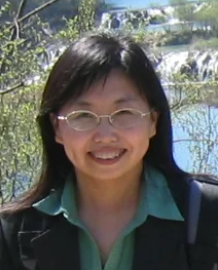
Jun Zang
University of Bath, UK
Title: Recent Advances in Wave Impact on Offshore Wind Turbine Foundations
Abstract: The University of Bath has been leading an UK funded joint EPSRC research project, looking at an alternative approach for calculating wave loading on a monopile, a typical type of offshore wind turbine foundation. This follows the method presented in their 2018 JFM paper, where complicated strongly nonlinear wave loading can be simply calculated based on linear wave loading only. This linear wave loading has been traditionally calculated using analytical or panel method, which is easy to get. Using this new approach, the complex nonlinear wave loading can be calculated accurately and efficiently. In this keynote talk, recent advances from the first two phases of experimental studied and numerical studies in this project will be presented, and new results with new physical phenomenon related to wave scattering, and wave loading on cylinder will be revealed.
Bio: Prof. Jun Zang is a Chair Professor of Coastal and Ocean Engineering, Deputy Head of the Department of Architecture and Civil Engineering, and a member of the Senate of the University of Bath, UK. She was the Chair of PRIMaRE (2015-2016, and 2022-2023), a Partnership of World-class research institutions based in the UK for research in Marine Renewable Energy. She led/participated in a number of large national and international research projects related to offshore wind and wave energy development, and wave hydrodynamics to help accelerate the development of marine renewable energy and improve the resilience and adaption of coastal areas under extreme wave conditions. Apart from her other roles, she is also an Associate Editor and an Editorial Board Member of several journals, and chaired the prestigious 30th International Workshop on Water Waves and Floating Bodies (IWWWFB) in 2015, the China-UK Bilateral Workshop on Coastal Zone Disaster Early Warning and Mitigation under Extreme Weather in 2021, and a couple of other conferences, including the 10th PRIMaRE Conference held this year in Bath.